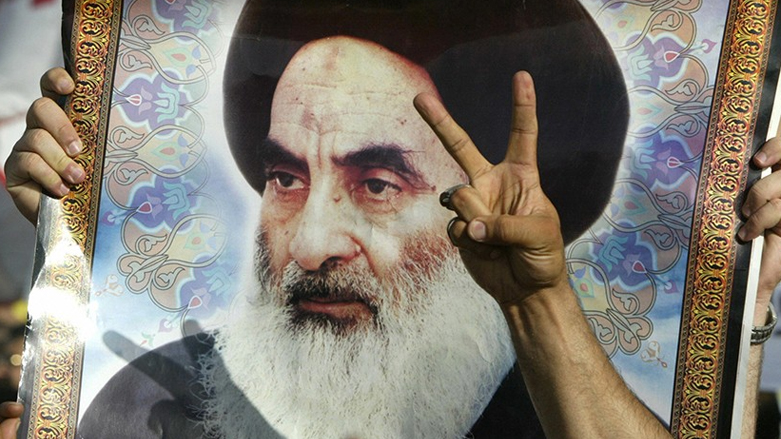Iraq's top cleric says recent US-Iran actions 'violations of Iraqi sovereignty'

ERBIL (Kurdistan 24) – Iraq’s top Shia cleric, Ali al-Sistani, condemned recent US-Iranian military confrontations on Iraqi soil, warning that any deterioration in the security of the country would have long-ranging effects across the greater Middle East.
“What is required of all is to think carefully about what the situation can lead to if it is not solved because of either side insisting on their own positions and refusing to budge from them,” Sistani’s aide said on the cleric’s behalf during Friday prayers in the city of Karbala.
“The serious attacks and repeated violations of Iraqi sovereignty that occurred in the recent days, with apparent weakness of the authorities concerned in protecting the country and its people from these attacks and violations, are part of the repercussions of the current crisis.”
Sistani has an enormous influence over millions of Shia Muslims in Iraq. Though careful to avoid making statements that are overtly political, his comments on current Iraqi events can have a considerable impact on public opinion and government policy.
The Ayatollah added that Iraq should be the “master of itself, ruled by its sons, and no role for strangers in its decisions.”
In late December, a few days after the US launched a strike on five bases of Iran-backed Popular Mobilization Forces (PMF) militias on both sides of the Iraqi–Syrian border, PMF militiamen and their supporters attacked the US embassy in Baghdad. Washington responded by assassinating leading Iranian military commander Qasim Soleimani and a senior PMF official as their convoy left Baghdad International Airport.
Late Tuesday night, Iran targetted airbases in Iraq and the Kurdistan Region housing US and coalition forces in retaliation for Soleimani’s killing, resulting in condemnation from top Iraqi leaders who, a few days earlier, had come out strongly against the United States for its military actions against Iran.
Read More: Iraqi leaders condemn Iran’s missile attack against US troops in Iraq
Sistani’s sermon continued, “The judgment is based on the will of the people and is a rational ruling that works to serve all citizens, regardless of their national and religious affiliations, and provides them with a decent life and happy life in both glory and safety.”
In late December, after the Iraqi parliament missed a constitutional deadline to nominate a replacement for Prime Minister Adil Abdul Mahdi who had announced his resignation weeks earlier amid national anti-corruption demonstrations, Sistani argued for early elections.
Read More: After Iraq fails to nominate new PM, top cleric calls for early elections
“The fastest and most peaceful way out of the current crisis, and avoiding the unknown or chaos or civil strife, is to go back to the people by holding an early election after legislating a fair electoral law,” said Sistani at the time.
